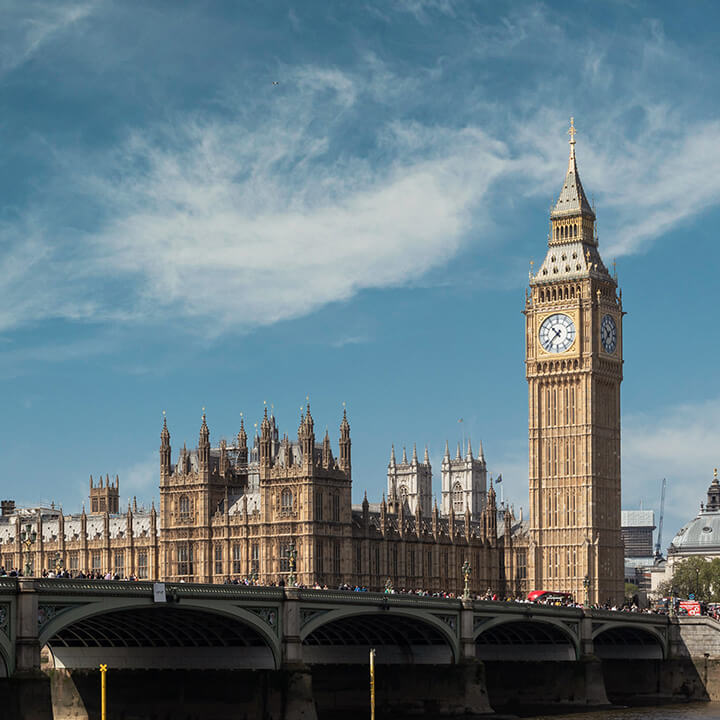Corporate Sustainability Due Diligence Directive (CSDDD): What businesses need to know
21st November 2024
“The Corporate Sustainability Due Diligence Directive aims to ensure that businesses contribute to the sustainability transition of economies and societies. In-scope companies will need to identify and address adverse human rights and environmental impacts in their own operations and throughout supply chains. The impact of the CSDDD will be wide-ranging and significant. We can help businesses to achieve compliance and, in turn, positive global impact.”


CSDDD: Will your business have to comply, and when?
After a two-and-half-year legislative journey, the CSDDD has been formally adopted and will introduce mandatory human rights and environmental due diligence requirements for large EU companies, and non-EU companies operating in the EU.
The aim of the CSDDD is to ensure that businesses contribute to sustainable development, and to the sustainability transition of economies and societies, through identifying and addressing adverse human rights and environmental impacts in their own operations and throughout supply chains.
It will apply to companies which satisfy one of the following criteria for 2 consecutive years:
- Companies established under the laws of an EU Member State that had above 1,000 employees and above EUR 450 million net worldwide turnover in the last financial year
- Companies established outside of the EU that generated a net turnover in the Union of more than EUR 450 million in the financial year preceding the last financial year.
The CSDDD also extends to ultimate parents of groups of EU and/or non-EU companies which meet these thresholds.
The new rules will become applicable to companies according to a staggered timeline (largest to smallest companies, then franchisors/licensors) between July 2027 and July 2029.
Requirements for in-scope companies
In-scope companies must take various steps to manage actual and potential adverse impacts of their/their supply chain partners’ activities on human rights and environmental matters. Captured activities will include:
- The activities of a company’s upstream business partners related to the production of goods or the provision of services by the company (including the design, extraction, sourcing, manufacture, transport, storage and supply of raw materials, products or part of the products and development of the product or the service).
- The activities of a company’s downstream business partners related to distribution, transport and storage.
The CSDDD sets out certain core due diligence obligations to identify, assess, prevent, mitigate, put a stop to, and/or to remediate adverse impacts; as well as obligations to carry out meaningful stakeholder engagement, monitoring and public communication. Importantly, it will also require companies to adopt and put into place a climate transition plan. (See our briefing for practical knowhow on climate transition planning.)
Companies won’t be expected to guarantee that adverse impacts won’t occur, nor that they’ll always be prevented. But appropriate measures that they may be expected to take will include:
- Developing and implementing prevention plans.
- Seeking contractual assurances from business partners, accompanied by measures to verify compliance.
- Making necessary financial or non-financial investments, adjustments or upgrades to operational processes and infrastructures.
- Modifying business plans, strategies and operations, including purchasing, design and distribution practices.
- Providing targeted and proportionate support to supply chain partners.
- Providing remediation.
- Where necessary, terminating business relationships.
CSDDD: Compliance and impact
Supervisory authorities of Member States will be responsible for enforcement. They may order non-compliant companies to cease conduct or to perform an action to bring it into compliance. Or they may impose significant pecuniary penalties, and/or withdraw and prohibit the placing, making available on the market, and export of products.
Companies could also face civil liability for damages where they intentionally or negligently fail to prevent, minimise or mitigate adverse impact (although civil liability will be excluded where damage is caused only by supply chain business partners).
Member States may also determine conditions under which trade unions, civil society organisations and national human rights institutions could bring collective redress mechanisms under the CSDDD on behalf of victims.
It’s also worth noting that compliance with the CSDDD is likely to be qualified as a criterion for the award of public contracts and concessions. That would influence tender/bid applications and processes, and would mean that any non-compliance could constitute a breach of any such contract or terms of concession.
So, there’s no doubt that the administrative impact of the CSDDD will be significant. But compliance will enable businesses to contribute, in a very tangible way, to positive global change for human rights and the environment.
How we can help with sustainability due diligence and reporting
Operating a successful sustainability due diligence strategy is essential for businesses today – in terms of CSR, ESG, commerciality, risk management, and increasingly, regulatory compliance. Our cross-sector and cross-discipline sustainability and supply chain specialists can work with businesses at every step of their journey to create, implement and deliver an effective sustainability due diligence strategy.
We can help you with:
- Internal and upstream/downstream supply chain audits, contract reviews and contract negotiations/re-negotiations and/or terminations.
- Drafting and implementing sustainability and due diligence policies and procedures.
- Keeping you updated and informed on sustainability-related legal and regulatory developments.
- Providing tailored training to staff at all levels.
- Assisting you in securing ‘green finance’ or investments based on sustainability criteria.
- Delivering low carbon, sustainable and other ‘green’ projects.
- Assisting with measuring and reporting of energy, carbon, climate and human rights risks.
- Designing and implementing effective transitional planning strategies and reporting.
- Providing comprehensive, cross-disciplinary advice and transactional assistance.
- Risk management and dispute resolution strategies if/when sustainability or due. diligence queries, concerns or investigations arise.
Please contact James Crayton or Ben Sheppard for tailored advice, assistance or training on the CSDDD and sustainability/due diligence reporting generally.









